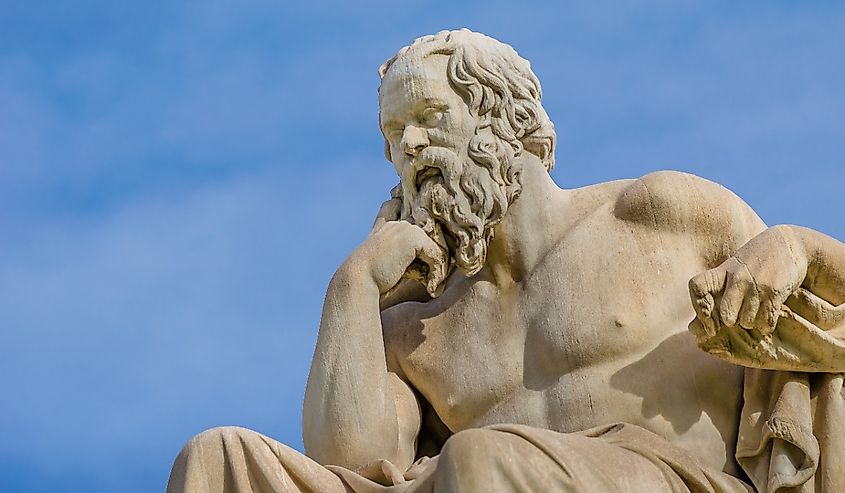
The Philosophical Approach to Skepticism
Most people are familiar with the word skeptic: a person who doubts commonly accepted opinions. But where does the notion of skepticism fit in philosophy? Philosophy poses many big questions about the self, the nature of reality, the pursuit of knowledge, and generally attempts to understand the world around us. A philosophical skeptic is someone who denies the possibility of knowledge. This idea dates back to early philosophical ideas. Here, we will explore what philosophical skepticism is and why it is an integral component of philosophy.
What is Philosophical Skepticism?
When hearing the word skepticism, one may define it as an attitude of doubt and uncertainty. This idea is indeed at the heart of skepticism; however, philosophical skepticism is slightly different. Philosophical skepticism questions the possibility of knowledge and argues that there are varying degrees of skepticism. A skeptic questions the possibility of knowledge in a specific area; a global skeptic rejects the possibility of knowledge at all. A local skeptic is a small-scale skeptic who examines the possibility of knowledge in a specific subject. For example, one could be a local skeptic about moral knowledge. These ideas are not new and have been around since ancient times.
Ancient Skepticism

Western skepticism is an attitude that dates back to around the 5th century BCE in ancient Greece. There was disagreement amongst philosophers about the nature of reality. Xenophanes, a Greek poet and philosopher, doubted anyone's ability to distinguish truth from fiction. He is the founder of Eleatic philosophy, which is the view that there is a static, eternal 'One' reality.
Later, Socrates developed a more concrete form of skepticism. Socrates always questioned the claims of knowledge that others made. In his dialogue, Apology, with Plato, Socrates sets out to see if anyone is smarter than he is. Socrates does not believe he is wise and admits in the dialogue that all he really knows is that he knows nothing - a quote that may be familiar to some readers.
In another dialogue, Phaedo and The Republic, Socrates extends his skepticism to everyday claims. He points out how perception can change the truth from person to person. For example, a chocolate bar that is small to someone might be big to someone else. This was the foundation for the idea of Western skepticism.
The Two Varieties
There are two different kinds of skepticism in Western philosophy. The first is Academic Skepticism, also known as Cartesian Skepticism. This is a weaker form of skepticism since it focuses on suspending belief in certain areas but does not question higher-order claims. While there are specific claims questioned, higher-order claims are safe to believe.
The other type of skepticism is Pyrrhonian Skepticism. This is a stronger form of skepticism because it questions higher-order claims about skepticism itself. This type of skepticism is even skeptical about skepticism. It questions claims skepticism makes, such as 'We should suspend belief in perceptual claims.'
The Dream Argument

There are various popular arguments for skepticism and its different branches. One of the most famous is the dream argument. Zhuang Zhou invented the dream argument in 369-286 BCE. He was a Chinese Taoist philosopher who argued that any individual could be currently dreaming even though we believe we are awake. For example, imagine you dream you are a butterfly flying amongst flowers. When you wake up, how do you determine you are waking up from a dream of being a butterfly and not a butterfly dreaming that you are human? Zhou concludes that all conscious experience is actually just a dream. He applies philosophical skepticism to his ideas by questioning the whole world around him. He places doubt on whether or not one can trust their own experiences. His philosophy stresses the importance of not taking our reality for granted.
The Evil Demon Argument

Another philosopher who explored a dream argument was Rene Descartes. Descartes argued that dreams are similar to real life and are often based on real-life experiences. This makes it difficult to decipher if a dream is real or not. However, whether you are dreaming or not, Descartes realized that mathematical ideas are consistent throughout both experiences. For example, whether you are dreaming or awake, 2 + 2 always equals 4.
Descartes also proposes that maybe humans are being tricked by an evil demon. This demon can trick you into believing anything it wants. If this is true, we cannot trust anything. Since we cannot deny that any evil demon is tricking us, we don't really have accurate knowledge of the external world. In this hypothesis, Descartes is a true skeptic. He claims that since we can't rule out the evil demon hypothesis, we cannot rule out the possibility that we are wrong and are not justified in our beliefs.
Skepticism Versus Critical Thinking
After learning about skepticism, one might notice it is similar to critical thinking. Critical thinking is the process of analyzing an argument and evaluating it logically. Critical thinking focuses on logically understanding an argument to make the best decision. However, while skepticism has a place and is necessary for the thinking process, it is not the same as critical thinking.
Skepticism is an attitude of doubt and questioning knowledge and beliefs. This is different than analyzing and evaluating information. While critical thinking and skepticism are different, they both have an essential role in making well-informed decisions.
Why is Skepticism Important?
Doubting that an idea is trustworthy is essential to the critical thinking process. Being skeptical allows us to question our behaviors, what we believe, and who we believe, which is helpful for humans to make informed decisions. Instead of following along with what everyone else is doing or believing what someone tells us without question, skepticism asks us to stop and ask questions. This can stop us from getting into situations where people are manipulating us. It also allows us to take more control over our lives and be more open-minded, which is a practice that can benefit everyone.







